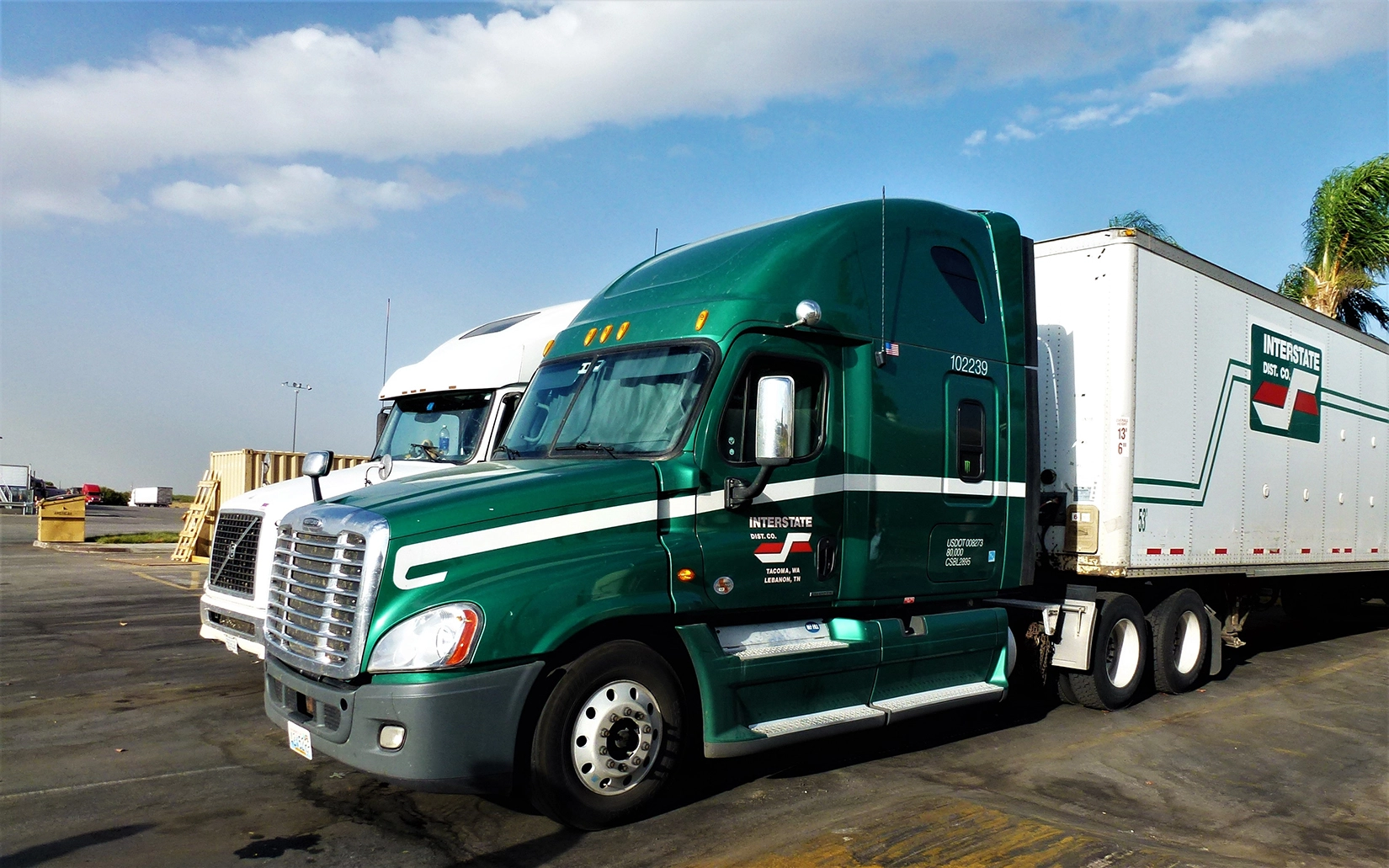Application Form
Please fill out the form below, so we can contact you as soon as possible!

The world of owner-operators is both challenging and rewarding. As a business owner, you have the power to steer your own financial ship. This piece provides a detailed overview of what you can expect in terms of earnings and costs as an owner-operator, empowering you to make informed financial decisions.
Gross income for owner-operators is influenced by several key factors, starting with freight rates. These rates, which determine how much you earn per mile or per load, can vary widely based on the type of freight, market conditions, and your negotiation skills. Different types of cargo come with varying rates; for instance, refrigerated goods are typically rated higher than dry van freight due to the added complexity and costs, while transporting hazardous materials usually has even higher rates due to the specialized handling and regulatory requirements. The number of loads you haul directly impacts your gross income, so efficient scheduling and minimizing empty miles are crucial strategies for maximizing your earnings.
Seasonal demand also plays a significant role in determining your income. But here’s the exciting part: understanding these fluctuations and making strategic decisions, you have the potential to significantly boost your earnings. This knowledge is essential for making strategic decisions that optimize your gross income as an owner-operator.
Running your own business means that you are in charge of all your expenses and should monitor them with vigilance. We will break down fixed costs such as truck payments, look at variable costs like fuel, and add other expenses that may or may not occur along your business path.
Fixed costs are ongoing expenses that an owner-operator must manage, regardless of the amount of work completed or income earned.
Variable costs for owner-operators fluctuate based on how much you drive and the specific circumstances of each trip.
In addition to fixed and variable costs, owner-operators also incur miscellaneous expenses that are essential for running their business smoothly.
Effective budget management is essential for owner-operators’ financial success. Adhering to these budgeting guidelines can improve your financial management, prepare you for unforeseen events, and guarantee your company’s long-term sustainability.
Start by keeping a close eye on every dollar you earn and spend. This covers both variable expenses, such as fuel and maintenance, and fixed costs (like insurance and vehicle payments). By creating a detailed monthly budget, you may better understand where your money is going and spot areas where you can reduce expenses or increase efficiency. Spreadsheets or budgeting tools can help you stay current and organized.
Save money aside for unforeseen repairs or periods of difficulty. To pay for unforeseen costs like significant truck repairs or times when the demand for freight declines, one must have an emergency fund. Try to accumulate enough money in your fund to cover three to six months’ worth of necessities. This safety net will give you stability and peace of mind, enabling you to deal with unforeseen obstacles without endangering your company.
Regularly review financial statements to identify patterns and make necessary corrections. Your income and expense statements should be reviewed on a monthly or quarterly basis to assist you in identifying patterns like seasonal changes in income or rising maintenance costs. You may decide where in your budget to make adjustments by looking at these trends, whether it’s adding more money for upcoming repairs or looking for ways to boost sales.
Managing expenses efficiently is key to maximizing profitability for owner-operators. Here are some strategies to help minimize costs and improve your bottom line.
Frequent maintenance and check-ups are essential to preventing future expensive damages. Preventive maintenance includes routine oil changes, brake inspections, tire rotations, and engine check-ups. Maintaining the best possible condition for your truck will help you avoid serious malfunctions, increase its longevity, and minimize downtime, all of which can cut down on overall maintenance expenses.
Purchasing equipment and maintaining techniques that use less fuel can result in large savings. Fuel efficiency can be increased by utilizing cruise control, idling time reduction, and constant speed management. To further improve fuel efficiency, consider making investments in low rolling resistance tires, aerodynamic enhancements, and routine engine tune-ups. One of the biggest variable costs you have as an owner-operator is fuel, which you can reduce by keeping an eye on and optimizing your use of it.
Utilizing the tax deductions available for owner-operators can help you pay less in taxes by lowering your taxable income. Expenses for insurance, fuel, maintenance, and even your truck’s depreciation are common deductions. You may optimize your tax savings and make sure you are aware of all relevant deductions by working with an experienced accountant or tax specialist. Maintaining thorough documentation of all outlays for the entire year is necessary in order to correctly claim these deductions.
For owner-operators to be financially successful, they must effectively manage their income and expenses. Factors including freight rates, freight types, the amount of loads hauled, and seasonal fluctuations all affect gross income. In addition to variable expenses like fuel, maintenance, tires, tolls, food, accommodation, and taxes, expenses also include fixed costs like truck payments, insurance, permits, licenses, and association fees.
Other necessary costs include those for technology, bookkeeping, and office supplies. Budgeting and spending control are essential; setting up a monthly budget, keeping an emergency reserve, and routinely analyzing financial data all contribute to financial stability. Further cutting costs is achieved by putting cost-cutting strategies into practice, such as tax deductions, fuel economy, and preventative maintenance.
Application Form
Please fill out the form below, so we can contact you as soon as possible!